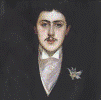Modern Languages and Literatures, Department of

French Language and Literature Papers
Document Type
Article
Date of this Version
October 1975
Abstract
An impressive amount of recent critical work has dealt with the philosophic element in Voltaire's tragedies. His plays have been labelled a theatre of involvement and a theatre of ideas; they have been examined from the standpoint of propaganda and as tragedy. However,the focus of such studies has been primarily on Voltaire's message or on the meaning of the plays, rather than on the dramatic structure he created to convey his philosophic concerns.
Today, of course, Voltaire does not rank high either as an original thinker or as a dramatist. Nonetheless, his attempt to introduce his philosophic concerns into his tragedies continues to deserve serious attention. For even though his plays seem at times to be only weak imitations of Corneille and Racine, and his chief contribution to philosophy that of a popularizer, the effort he made to bring the two together was a real innovation in the French theatre. His involvement in both areas was intense and lifelong. Voltaire loved every aspect of the theatre--acting, designing scenery and writing. His intellectual activity was equally passionate and wide-ranging for he concerned himself with troublesome metaphysical questions as well as with the more practical problems of social and political reform. Given his love for both the theatre and philosophy, it was inevitable that Voltaire should seek to combine the two. Moreover, one of the most fascinating features of this marriage is the point at which philosophy and the theatre converge--the dramatic structure of these plays. As Robert Niklaus has noted, Voltaire's treatment of philosophical themes in the tragedies is less complex than in his other writings, and it remained fairly constant throughout his long career as a dramatist. How Voltaire turned the theatre into a vehicle for his thought is perhaps as interesting as the message itself.


Comments
Published in Studies on Voltaire and the Eighteenth Century, edited by Theodore Besterman, Volume CXLIII. The Voltaire Foundation, Thorpe Mandeville House, Banbury, Oxfordshire, 1975. Pages 7–48. Copyright © 1975 Theodore Besterman.